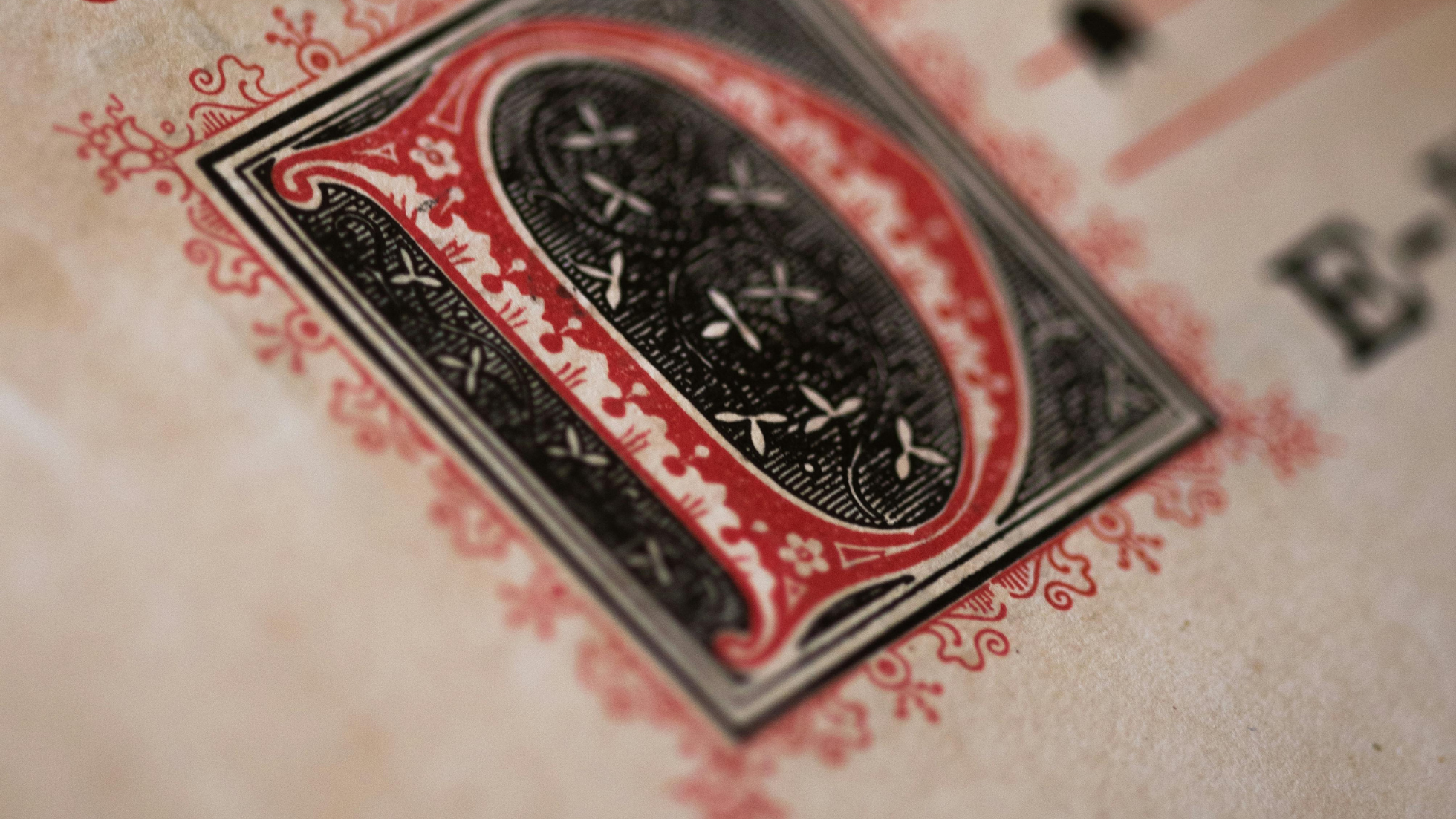
5 Capitalization Mistakes You’re Probably Making
I’ve never clocked it, but if you forced me to tally up the most frequent kind of edits I make to a book, it would be fixing improper capitalization, hands down. But over the years, I’ve noticed capitalization mistakes most indie authors tend to make, mistakes* you’re probably making in your own writing at this very moment. Here are the most common capitalization mistakes in fantasy novels and tips for avoiding them in your story.
Capitalization, Generally
First, when should something be capitalized and when should it be lowercased? In general, the following types of words in real-world English, according to The Chicago Manual of Style, receive capitalization:
Proper nouns, which refer to specific people, places, and other named entities, are usually capitalized, as are many of the adjectives and other terms derived from or associated with them. (CMOS 8.1)
CMOS devotes an entire section to capitalization guidelines, and the manual prefers a more “downstyle” approach, meaning they recommend lowercasing most things over capitalizing them.
Capitalization’s Effect on Writing
Why downstyle? Capitalization says to a reader that “this is important” or “this name deserves special treatment.” Capitalization gives weight and gravity to a term within your world and by extension, within your readers’ minds as they’re immersed in your world.
The cool thing is, as the creator of your world, you get to decide what terms, names, places, and other proper nouns deserve that special treatment of a capital letter.
The bad thing is, the temptation exists to put special treatment on all the important terms in a story, as a way of emphasizing to readers that “this name is cool and you should pay attention to it” or “this person is important in the hierarchy of this world and you should pay attention when they appear.”
In other words, capping draws attention. When a capitalized term appears in the middle of a sentence, it tends to take the reader out of the story a bit to make them think about your world and the term’s importance in it. The capital letter demands that the term or title or name take precedence over all others surrounding it, especially if the capitalization differs from capping standards in real-world English that readers are used to seeing.
And when a reader is asked to think, even subconsciously, about your world, they’re reminded that the world isn’t real, that it’s an invented or made-up place.
Capitalization Examples
Here’s an example sentence:
Stegga always enjoyed eating Schnickendoofal Fruit on his chipped blue Dogbird-Bone China plate, sitting next to his brother, Aleward, while drinking Burpberry Juice in the Tavern.
What kinds of nouns here have been capitalized? Names (okay), a type of fruit (eek), the material used in a plate (yikes), a flavor of drink, and the general term for an establishment where one drinks it. With each encounter, a reader is reminded that none of these items are real and neither is the world you’re asking them to suspend their disbelief in.
Notice, as well, the sheer number of capitalized terms within the sentence, which leads to another question you might need ask yourself: If one general noun gets a cap, then why not all the others? And how does that decision get made?
Another example:
The King called in his Generals to discuss that troublesome Magician and his Apprentice-in-Training as both waited outside the Palace to blast the War Room with a Fireball Spell.
We all know what happens when we get too much of a good thing: the good thing loses its uniqueness. As we can see from the sentence, if we capitalize all of the general titles and place names, then every title and term has weight and gravity and readers are left without any hierarchy to grab on to.
Now, apply CMOS’s capitalization guidelines to these sentences, and see what happens:
Stegga always enjoyed eating schnickendoofal fruit on his chipped blue dogbird-bone china plate, sitting next to his brother, Aleward, while drinking burpberry juice in the tavern.
The made-up terms now seem like everyday, accepted parts of the world that the characters (whose names deserve the emphasis) inhabit. The schnickendoofal fruit, the dogbird-bone china, and the burpberry juice are just normal parts of their world, and by extension, they’ll seem normal to your readers, too.
The king called his generals in to discuss the troublesome magician and his apprentice-in-training as both waited outside the palace to blast the war room with a fireball spell.
All of the nouns in the sentence are general nouns common to the world of your characters, so they’re lowercased just like in real-world English.
Now, take the same sentence and add some proper nouns:
King John called in General Mike to discuss the troublesome magician and his apprentice-in-training as both waited outside the Lotus Blossom Palace to blast the war room with a fireball spell.
Suddenly, we’ve added some characterization and setting to the sentence by introducing actual proper names and assigning capitalization appropriately.
Common Capitalization Mistakes*
So what are the most common capitalization mistakes, and how should a conscientious magic writer wield caps to keep reader immersion intact? Ahead are the top five areas where I see capitalization “mistakes” most often, and I’ve included my recommendations (and those of The Chicago Manual of Style) for what to do instead:*
Titles
The first mistake is capitalizing titles when used generally or not in conjunction with a specific person’s name. In fantasy, capping royal titles can get especially burdensome. Here’s the general rule of thumb for royal titles, as well as military, political, organizational, religious, and any other titles of office that people usually hold.
General: the queen, the senator, the general, the pope (if you can put an article like a, an, or the in front of the word, it’s a general noun)
Proper: Queen Beatrice, Senator Quigley, General Lutz, Pope Leo (if you use it before or in place of a name, cap it)
Kinships
Another common mistake is incorrectly capitalizing terms used to describe family or kinship relationships. When you’re referring to such kinship relationships, the same guidelines for titles apply.
General: his mom, my dad, Sarah’s uncle, Bob’s grandmother
Proper: Mom is my hero; Dad took me to the fair; Uncle Frank is coming for dinner; Grandma said I was good today
Direct Address
Capitalization for titles used in dialogue can be especially tricky and another area where most authors get confused.
When you’re using a title in place of a name, such as when one character calls another by his or her title instead of his or her formal name (called “direct address”), capitalize the title.
General: “I told the lieutenant to move the troops.”
Proper: “Lieutenant, move the troops.”
Common Nouns
Capitalizing generic, world-specific made-up nouns is a mistake that can have a big impact on your worldbuilding and reader immersion in your story. A good consideration for whether or not to capitalize a made-up noun is to consider how the equivalent or similar noun is capitalized in our world. For example, is it:
I’m eating a banana, or I’m eating a Banana?
He’s sitting in the helicopter, or He’s sitting in the Helicopter?
So, in your world, it should probably be:
I’m eating a mushfruit.
He’s sitting in the whirlybird.
Group Names
Names of groups like companies (Martian Mining Corporation), governing bodies (the Wisdom Council), fighting groups (the Lemurian Knights), and the like are typically capitalized as proper nouns, but what about their generic equivalents? The final mistake I often see is assigning a cap to terms like: the Corporation, the Council, the Knights.
Usually, following the rule of thumb for titles works here as well: the corporation, the council, the knights. If you can put an article (a, an, the, etc.) before the term, it probably should be lowercased since it’s being used as a general noun. But this gets tricky as some specific real-world English equivalents used with an article get capitalized, such as “the Senate” or “the Security Council” or even “the Crown” (for the British monarchy). If in doubt, consult Merriam-Webster’s or your editor.
Final Thoughts
*In calling out these five capitalization mistakes, I used an asterisk with “mistakes” because I hesitate to color them as such. As with everything in writing and editing, you can choose to follow or break “da rulz” as you please—it’s your book.
One overriding best practice, though, is to make sure that whatever you choose to do—capitalize, lowercase, whatever—you’re consistent throughout your manuscript. If you want to capitalize “the King,” go for it! Just do it for each and every use. If you want to capitalize something like “the Council” to give it weight and importance, by all means, cap it. But make it “the Council” everywhere.




